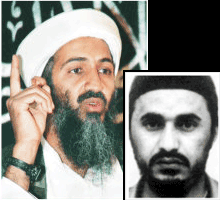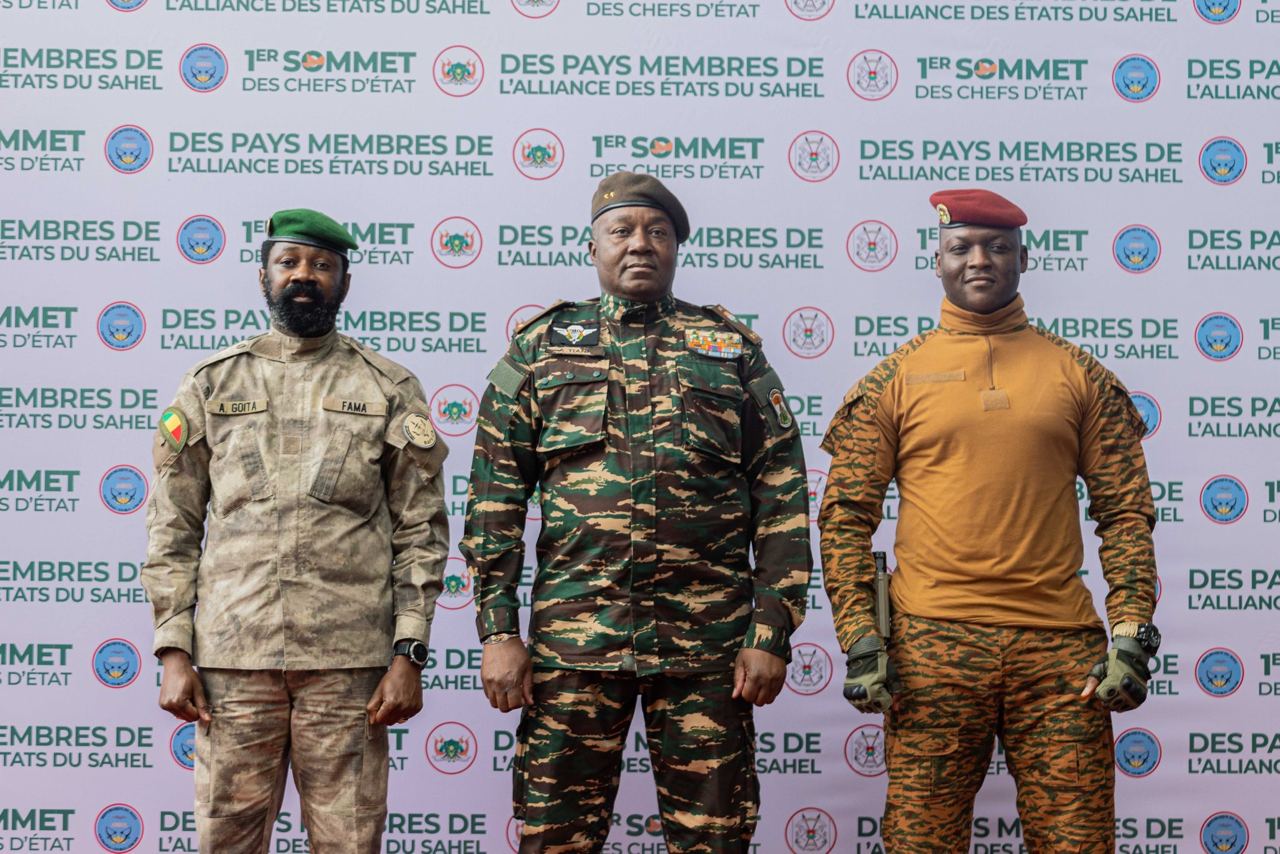
Coalition Warfare, Part II: How Zarqawi Fits into Bin Laden’s World Front
Coalition Warfare, Part II: How Zarqawi Fits into Bin Laden’s World Front
The Iraq-based organization of Abu Mus’ab al-Zarqawi is the most recent addition to Bin Laden’s coalition, the World Islamic Front Against Crusaders and Jews. Zarqawi is the most important addition to the Front since it absorbed Zawahiri’s Egyptian Islamic Jihad. It is therefore worth examining how Zarqawi’s group fits into the coalition and how its activities mesh with bin Laden’s three tenets for coalition warfare. To recap from Part I of this article, those tenets are: Command: Bin Laden is the inciter-in-chief, not commander-in-chief; Management: Impose only a few clear and simple rules; and the goal of disrupting U.S. leaders’ focus and dispersing U.S. military/intelligence forces. (See Terrorism Focus, Volume II, Issue 7).
Command
Bin Laden’s late-December, 2004, welcome of Zarqawi into the World Front, as always, bore no hint that al-Qaeda would control Zarqawi’s operations. Bin Laden’s acceptance of Zarqawi’s group came after almost a year of talks between “Shaykh Abu Mus’ab … and the brothers of al-Qaeda,” and more than two months after Zarqawi announced he and his “soldiers have pledged allegiance to the ‘Shaykh of Mujahideen’ Osama Bin Laden and they will follow his orders in jihad for the sake of God….” (Statement by Jama’at al-Tawhid wa-al-Jihad, 17 October 2004, www.alhesbah.org) In accepting Zarqawi, Bin Laden underscored that Zarqawi would not be under his direct command, saying that he “believed that the Mujahid Emir, dignified brother Abu Musab al-Zarqawi, and the groups affiliated with him, are good and from the group that fights according to the orders of God.” He also praised the “daring operations” Zarqawi had conducted against “the Americans and Allawi’s renegade [Iraqi interim] government.” (Bin Laden Statement, 28 December 2005, www.yaislah.org)
Applauding Zarqawi for “adhering to the covenant of God,” bin Laden almost unobtrusively told his audience that “[i]t should be known that … Abu Musab al-Zarqawi is the emir of the al-Qaeda organization” in Iraq, urging “[t]he brothers in the group there should heed his orders and obey him in all which is good.” (Bin Laden Statement, 28 December 2004, www.yaislah.org) For the public, Zarqawi surrendered none of his autonomy by joining al-Qaeda, save changing his group’s name from Jama’at al-Tawhid wal-Jihad to Qa’idat al-Jiahd Bilad al-Rafidayn – The al-Qaeda Organization for Jihad in the Land of the Two Rivers. (Al-Arabiyah TV, 24 October 04) In all other ways, bin Laden made it clear that Zarqawi — not bin Laden — was in command in Iraq.
Management
Behind the public cordiality lay, as Zarqawi’s statements noted, almost a year of talks between him and “the brothers of al-Qaeda.” The bulk of the period was spent finding a formula to ensure Zarqawi obeyed the two main regulations governing al-Qaeda’s coalition partners: (a) member groups must keep moving and acting in a generally anti-U.S. manner, and, (b) member groups must not worsen intra-Islamic disputes over religion, ethnicity, and other issues until America is defeated. (See Terrorism Focus, Volume II, Issue 7) The first regulation obviously is not an issue of dispute between Zarqawi and al-Qaeda; the second was the sticking point.
After the U.S. invasion, it became clear that Zarqawi is an advocate of indiscriminate war against Iraq’s Shi’as, whom he described in a June 2004 letter to bin Laden as “the lurking serpent, the cunning and vicious scorpion, the waylaying enemy, and the deadly poison.” The Shi’a threat, Zarqawi argued, “is more serious and can inflict more harm on the nation than the Americans.” He advocated “targeting them, and striking at them in their religious, political, and military depth [to] provoke them and make them come out against the Sunnis, bare their fangs, and bring out the internal hatred [for Sunnis] in their hearts.” In sum, Zarqawi wanted to ignite an open Sunni-Shi’a civil war in Iraq, and offered his group’s allegiance to al-Qaeda if bin Laden would “adopt this course of action, and get convinced of the idea of fighting the apostasy groups…” Zarqawi closed the letter by saying that if al-Qaeda did not endorse anti-Shi’a warfare, his group would not join the World Front, but “we will remain brothers and disagreements would not harm our relations.” (Letter from Zarqawi to bin Laden, 15 June 2004)
Zarqawi’s plea for help in causing a sectarian civil war stood no chance with bin Laden, who has consistently said that a victorious defensive jihad against “the aggressive enemy … [is] impossible without all Muslims of all walks and ranks getting together….” (Bin Laden, Declaration of War on the United States, 1 September 1996, al-Islah Website) Bin Laden asserts that the greatest imperative is to suppress sectarian differences until America is defeated. The duty of Muslims, he preaches, is to “overlook some disputed issues” and follow the guidance of the medieval Islamic scholar Ibn Taymiyyah that “work should concentrate on warding off the greater of two evils.” Bin Laden holds Shi’a Islam a heresy, but insists it is better for Sunnis to proceed “with the sinful princes.,. [so] that the greater harm is avoided and most of the rules of Islam are established, if not all” (Bin Laden, Declaration of War on the United States, 1 September 1996, al-Islah Website). Bin Laden has no doubt that America, not Shi’ism is the source of “greater harm” to Islam.
Given the greatly differing positions of Zarqawi and bin Laden, the former’s accession to the World Front strongly suggests that he dropped his insistence on a “dragging them [Shi’as] into the sectarian battlefield.” (Zarqawi Letter to Bin Laden, 15 June 04). It is not a coincidence that bin Laden accepted Zarqawi only after an occasion arose where Zarqawi could publicly disassociate himself from arbitrary attacks on Shi’as. On December 19 2004, Reuter’s reported a web-posting by Zarqawi’s group denying responsibility for the indiscriminate 18 December bombings in Karbala and Najaf, which killed 66 and wounded 191. “We, the al-Qaeda Organization for Holy War in Iraq,” the communiqué said, “announce that we are not responsible for the explosions which happened in Karbala and Najaf…” The message said the group would continue attacking U.S. targets and “those [Iraqis] who support the Americans and the infidel camp,” a position approved by bin Laden and dozens of senior Islamic clerics worldwide. With this statement in hand, bin Laden said on 27 December 2004, that “We in the al-Qaeda organization warmly welcome their [Zarqawi’s group] union with us” — emphasizing Zarqawi was joining al-Qaeda on its terms. Bin Laden also praised Zarqawi in “regard to unity and adhering to the covenant and God,” claiming he had taken “a great step toward rendering successful the efforts of the mujahideen ….” (Bin Laden Statement, 28 December 2005, www.yaislah.org).
Goals
It seems superfluous to discuss how Zarqawi’s accession to the World Front furthers al-Qaeda’s coalition-war fighting goal of disrupting U.S. leaders’ focus on al-Qaeda; causing a wider dispersal of U.S. military/intelligence forces — especially since the capture of Bin Laden’s letter asking Zarqawi to increase anti-U.S. attacks — and driving up U.S. terrorism-related expenditures. Citing Bin Laden’s description of the World Front’s goal suffices to validate the high value of Zarqawi’s coalition membership. “All that we have mentioned has made it easy to provoke and bait this [U.S.] administration” bin Laden said on 27 December 2004, “All we have to do is to send two Mujahideen to the furthest point East to raise a piece of cloth on which is written al-Qaeda, in order to make the [U.S.] generals race there to cause America to suffer human, economic and political losses without achieving for it anything of note…. So we are continuing this policy of bleeding America to the point of bankruptcy. Allah willing and nothing is too great for Allah.” (Bin Laden Statement, 28 December 2005, www.yaislah.org) Clearly, Zarqawi is now an agent of al-Qaeda’s bleeding-to-bankruptcy policy.
Michael Scheuer served in the CIA for 22 years before resigning in 2004. He served as the Chief of the bin Laden Unit at the Counterterrorist Center from 1996 to 1999. He is the once anonymous author of Imperial Hubris: Why the West is Losing the War on Terror and Through Our Enemies’ Eyes: Osama bin Laden, Radical Islam, and the Future of America.


